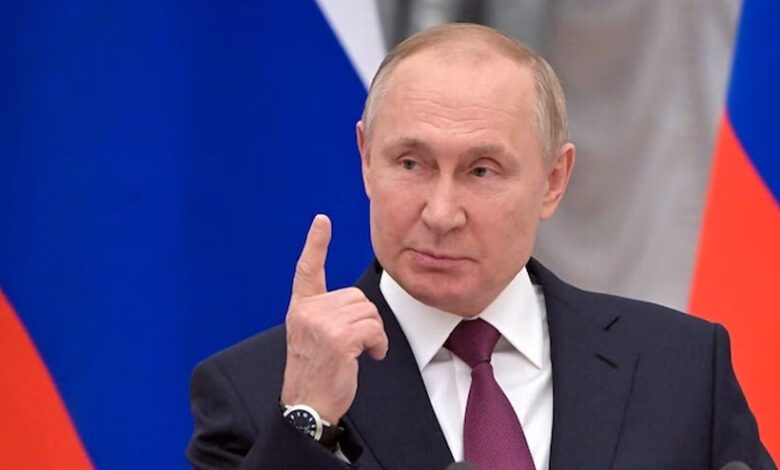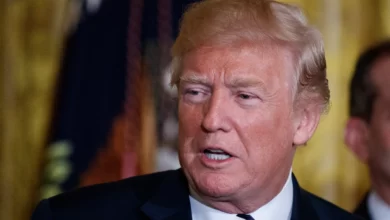Private Russian Military Companies are Multiplying
The Kremlin said that Russia will consider legalising private military companies

Kabari99-The Kremlin said Friday that it is considering granting legal status to some of the more than two dozen private military companies active in Russia. Legally,
these shadow paramilitary groups do not exist which allows them to operate parallel to Russia’s armed forces, at times doing high-risk “dirty” jobs for the army while giving Moscow a measure of deniability.
The Kremlin said Friday that Russia will consider legalising private military companies (PMCs) like the Wagner Group,
Also read on :Kesepakatan dengan Inter Miami dan Lionel Messi
which have been proliferating in Russia since 2014 despite their nebulous legal status.
What accounts for their growth and what do these parallel armies reveal about how the Russian regime functions?
The Kremlin announced Friday that it is considering granting legal status to some of the many private military groups active within Russia,
notably the Wagner Group but also lesser-known militias like Convoy, Patriot, the Moran Security Group and Shchit (Shield).
“Legally,
the Wagner private military group does not exist and has never existed,” Kremlin spokesman Dmitry Peskov told reporters, noting that the status of companies such as Wagner remains “rather complicated”.
The declaration came a day after a similar statement made by Russian President Vladimir Putin to the “Kommersant” business daily. “The (Wagner) group is here, but it does not exist legally,” he said.
Putin said its eventual legalisation was a question to be discussed in the Duma (the lower house) and within the government.
Also read on :Kevin Bacon membagikan sarapan favoritnya yang ‘aneh’
And yet the number of private military companies active in Russia has continued to grow in recent years,
boosted by the necessity of drafting soldiers to fight the war in Ukraine as well as the Kremlin’s willingness to make these shadow armies an instrument of Russian foreign policy.
Weakened by sanctions and increasingly isolated on the international stage since its illegal annexation of Crimea in 2014,
Russia has been looking for a way to boost its geopolitical influence – particularly in Syria and on the African continent – notably through the Wagner Group.
Read read on:Tragis India di Landa Banjir dan Longsor
The Blackwater model
Washington’s use of the Blackwater mercenary group in Iraq became an international symbol of the increasing privatization of war.
Following Russia’s 2014 annexation of Ukraine, Yevgeny Prigozhin co-founded the Wagner paramilitary group,
whose members were largely composed of former Special Forces and recruits from prisons. Once a close Putin ally,
Prigozhin’s fate has been uncertain since a failed June 24 rebellion saw his men briefly march on Moscow.
Private military companies provide numerous advantages for the Russian state, including costing less than regular troops and the fact that,
legally, they do not exist. This allows Moscow to wage hybrid warfare far afield, all the while denying involvement.
Russia’s military doctrine sought to focus on asymmetric responses to much more powerful enemies like NATO, said Danilo Delle Fave,
Also read on :Messi agreed of IDR 4.8 T per Year from Al Hilal!
an intelligence and military strategy analyst for the International Team for the Study of Security in Verona.
“You can use mercenaries to do not only the dirty jobs but the high-risk ones that you don’t want to leave to your Special Forces.”
Read on :Oman Chamber of Commerce and Industry
More than two dozen PMCs
Another advantage for the Kremlin is that mercenaries help mask the scale of Russian losses in Ukraine.
Unconventional armed forces are rarely included in official casualty counts, this reducing the political cost of the Russian invasion of Ukraine.
Russia has 27 active private military companies, with more than 70% created after 2014,
according to Molfar, a Ukrainian investigative and fact-checking website.
Energy giant Gazprom recently created two private armies, known as Fakel (Torch) and Plamya (Flame).
The mission of these private armies is to protect the company’s assets abroad but also to back up Russian forces in Ukraine.
Since November of last year, even the Russian Orthodox Church finances its own PMC, whose volunteers were to take part in the Kremlin’s war in Ukraine.
“The number of PMCs could continue to grow, especially after the war in Ukraine ends,” said Marcel Plichta,
Read more :TikTok: Girl Dinner
a specialist in international relations at the University of St Andrews in the United Kingdom and a former analyst for the US Department of Defense.
For the many Russians mobilized on the front lines,
these private militias provide work opportunities and allow them to continue using the skills they learned on the job, he added.
According to a survey published by Molfar, about a quarter of Russian PMCs operate solely in Ukraine,
while a dozen are present in several countries around the world, particularly in Africa.
Read more :Penyelidikan Korupsi Langka Singapura
Their role is simple: to defend the interests of their leaders and those of the Kremlin. In the same vein,
Wagner’s model consists of seizing natural resources in exchange for combat missions, military training and intelligence.
“Wagner is unique compared to other PMCs because Prigozhin is not just a mercenary boss, he is a businessman.
In Africa he exploits gold mines through his companies, with his own employees and his own security service; he then exports minerals to other countries.
There are no other militias with the same capabilities at the moment,” Plichta pointed out.
Kabari99-Diwani-Yogyakarta




